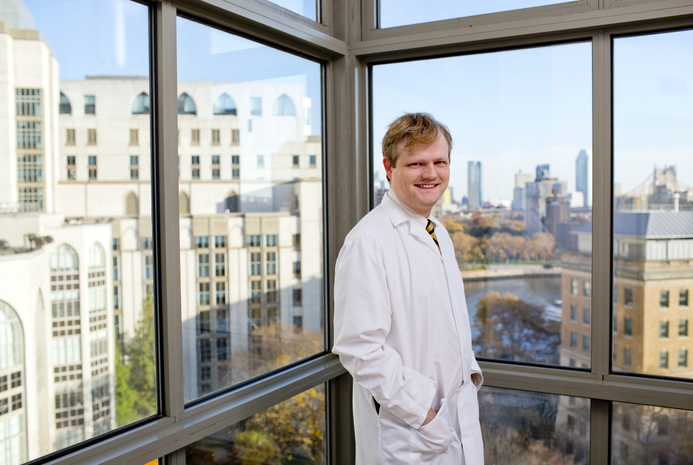
Dr. Matthew Greenblatt, an associate professor of pathology and laboratory medicine at Weill Cornell Medicine, has been awarded the Pershing Square Foundation’s Maximizing Innovation in Neuroscience Discovery (MIND) Prize to support his work studying how bone cells may influence Alzheimer’s disease progression.
The Pershing Square Foundation was founded in 2006 to support leaders and organizations, including those in health and medicine, in tackling crucial social issues and delivering sustainable and scalable global impact. Newly established in 2023, the MIND Prize provides $750,000 in funding over three years. Dr. Greenblatt will be honored with fellow inaugural winners in New York City later this year.
“This was a pleasant surprise, because this award focuses on neuroscience while our work is in bone—though we are trying to link bone to many disease processes,” said Dr. Greenblatt, who is also a pathologist at NewYork-Presbyterian/Weill Cornell Medical Center. “Because the Pershing Square Foundation is very open-minded about the connections between disciplines, we were very lucky to be able to get this support.”
In his lab at Weill Cornell Medicine, Dr. Greenblatt and his team’s work has focused on skeletal stem cells and bone formation. The award will fund new research investigating whether low bone mass speeds brain decline and dementia progression. The effort will determine whether bone throughout the body secretes new hormones that circulate through the blood to impact critical steps in how Alzheimer's causes neurodegeneration.
This theory “meshes well with clinical data showing that Alzheimer’s patients show low bone mass early in the disease process, usually before detectable cognitive symptoms,” Dr. Greenblatt said. “This made us think the effect of bone on Alzheimer’s isn’t passive, but may be driving disease progression.”
Ultimately, he hopes the effort will determine if various medications targeting bone might prevent or control the neurodegeneration that characterizes Alzheimer’s, which affects an estimated 6.7 million Americans, according to the Alzheimer’s Association. “We hope in three years to know which drugs may be relevant and use that information to design proper clinical trials to take advantage of this link we’ve proposed between bone and the brain,” he said.
Dr. Greenblatt noted that he couldn’t have won the MIND Prize without valuable input and feedback from his colleagues at the institution working in neuroscience and neurodegeneration: “We had a lot of support from other Weill Cornell Medicine investigators, which was critical in helping us apply our expertise in bone to this disease problem.”
